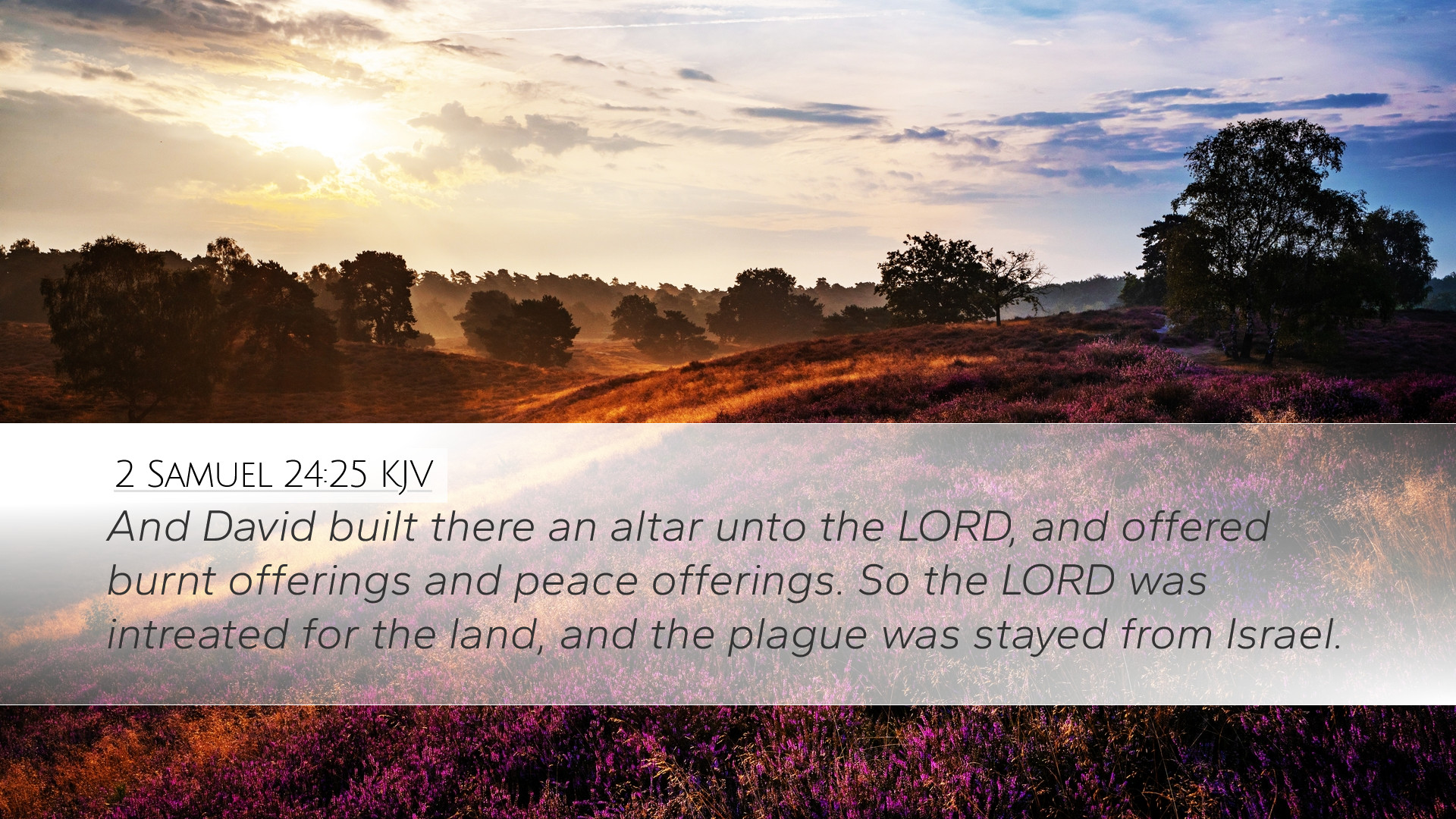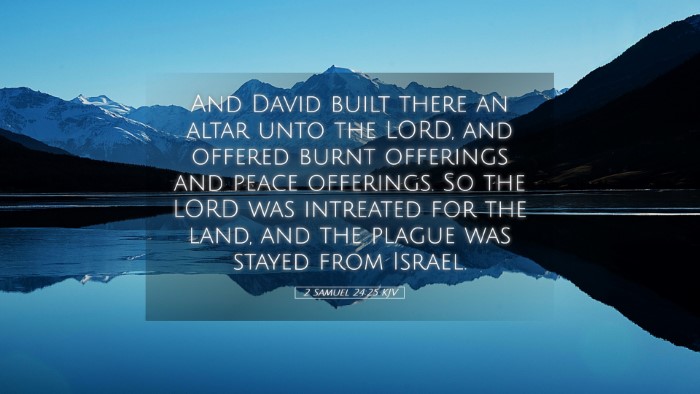Commentary on 2 Samuel 24:25
Verse Context:
2 Samuel 24:25 states, "And David built there an altar unto the Lord, and offered burnt offerings and peace offerings. So the Lord was intreated for the land, and the plague was stayed from Israel."
General Overview
This verse falls at the conclusion of a significant narrative regarding King David's census of Israel, which resulted in divine judgment. The act of building an altar and offering sacrifices signifies repentance and a desire for reconciliation with God.
Theological Significance
Matthew Henry's Commentary:
According to Henry, this verse illustrates the power of sacrificial offerings in seeking divine favor. David's act of offering signifies that true worship comes from understanding our position before God, particularly in times of judgment and crisis.
Albert Barnes' Notes:
Barnes emphasizes the importance of the altar as a physical reminder of God's grace and mercy. He notes that David's actions reflect a national acknowledgment of sin and a collective return to God. The altar at Araunah's threshing floor served not only David's personal repentance but also the communal needs of Israel.
Adam Clarke's Commentary:
Clarke remarks on the implications of the sacrifices offered. He emphasizes peace offerings as expressions of thankfulness for divine mercy and burnt offerings as acts of complete dedication to God. The cessation of the plague after these offerings signifies God's willingness to restore relationship upon genuine repentance.
Cultural and Historical Context
The cultural undertones in this passage are rooted in the ancient Israelite understanding of sacrifice. Sacrifices were seen not only as acts of worship but as necessary mediations for sin and communal well-being. The location of the altar would later become significant, as it is traditionally believed to be the site of the future temple in Jerusalem.
Significance of the Threshing Floor
The choice of Araunah’s threshing floor signifies humility. David, the king, approaches a common man’s property to construct a place of worship. This act highlights the principle that true worship can emanate from humble beginnings and reveals that God's mercy can intersect the lives of all individuals regardless of their social standing.
Application for Believers Today
The actions of David serve as a profound reminder for contemporary believers. Sacrifice in the context of modern faith may not always take the form of physical offerings, but rather the sacrifice of personal pride, sin, and comfort in pursuit of a relationship with God.
- Repentance: Continuous repentance is essential for spiritual health. David’s act of building the altar represents a heart posture seeking restoration.
- Worship in Action: True worship is demonstrated through actions that reflect our faith and reliance upon God for mercy.
- Community Acknowledgment: Just as David's actions were for the nation, believers are called to seek the welfare of their communities before God.
Conclusion
2 Samuel 24:25 stands as a potent illustration of God's response to sincere worship and repentance. The dispensations of grace over Israel amid judgment serve as a reminder that divine compassion is always available to a contrite heart. Commentators like Henry, Barnes, and Clarke together emphasize the importance of these themes in understanding not only the narrative of David but also the overarching narrative of redemption throughout Scripture.


